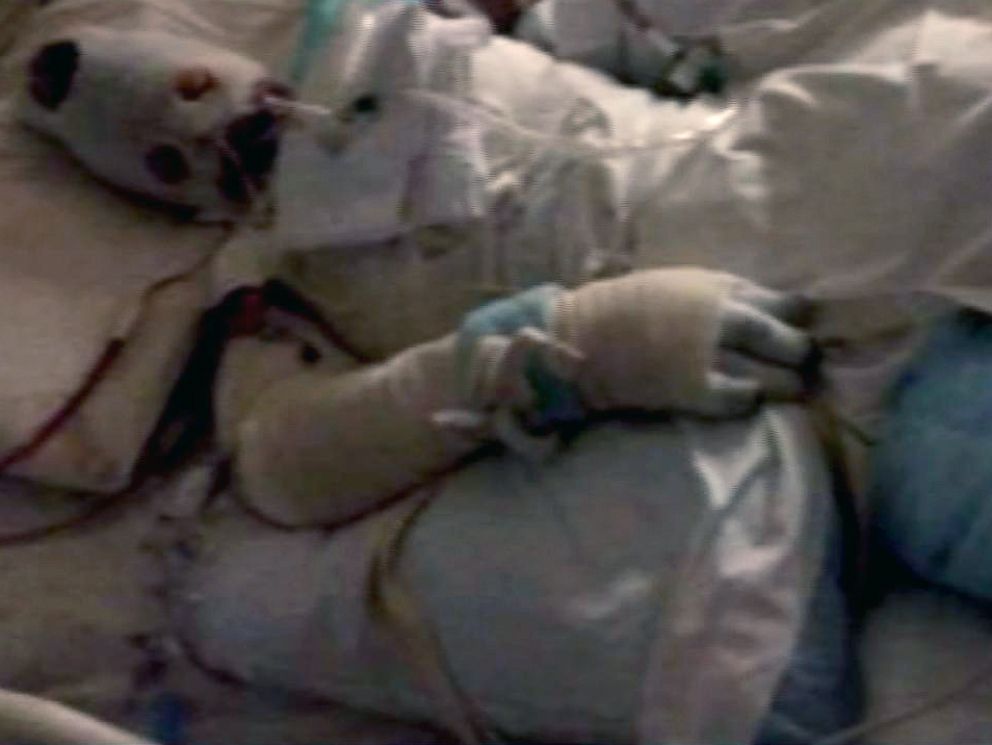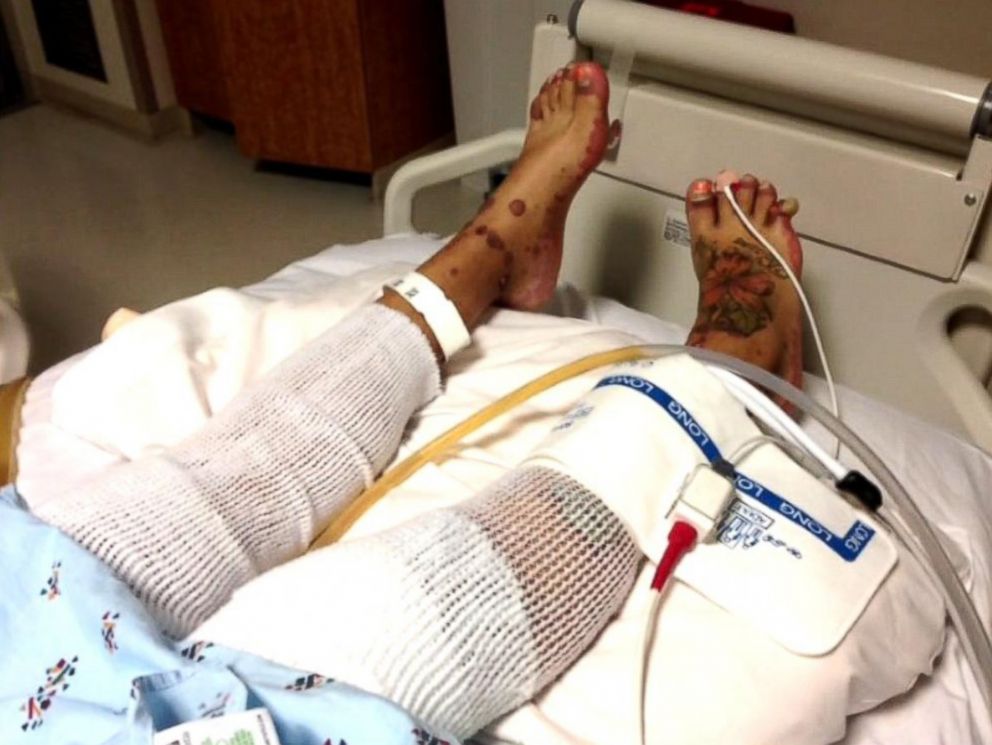Woman 'Burns' From Inside Out After Reaction to Friend's Medicine

Auto Start: On | Off
00:00
/
00:00
A young mother is in intensive care after having a rare but serious
reaction to a friend's prescription antibiotics that caused her to
"burn" from the inside out.
Yassmeen Castanada, 19, wasn't feeling well on Thanksgiving, so she took
a pill that her friend had left over from a previous illness. Soon,
Castanada's eyes, nose and throat began to burn, and she was rushed to
the emergency room, her mother, Laura Corona, told ABC News.
Her body erupted in blisters over the next few days, Corona said. She had to be sedated and placed on a ventilator.
"Her face changed within four days," Corona told ABC News. "I would wipe her face and all the skin was just falling off."
Doctors diagnosed Castanada with Stevens-Johnson syndrome,
a rare but serious drug reaction that can occur even when drugs are
taken as prescribed by a doctor, said Dr. Joshua Zeichner, a dermatology
professor at the Mount Sinai Hospital in Manhattan who was not involved
in treating Castanada.
"You're not truly burned, but what happens is you have compromised the skin barrier function," Zeichner said.

Inflammation and blistering occur on the outer layer of skin as well as
the lips, eyes and genitals, leaving the patient vulnerable to infection
and unable to properly balance electrolytes and stay hydrated, Zeichner
explained. As such, these patients are treated like burn victims.
"You get very painful lesions on your skin that are basically blisters,"
said Neil MacKinnon, dean of the University of Cincinnati's Winkle
College of Pharmacy. "Your whole body is in excruciating pain."
Castanada was eventually transferred to the University of California
Irvine's burn unit, where doctors said over 70 percent of her body was
damaged, Corona said. She's undergone several surgeries over the past
few weeks, but her feet are still blistering.
Zeichner said he sees it most often with antibiotics, but MacKinnon said
this sometimes fatal reaction is different from most reactions to
antibiotics, which are usually limited to gastrointestinal symptoms.
"Unfortunately, we have no way of predicting who would have this type
reaction," Zeichner said, advising that patients only take prescriptions
given to them by their doctors. He said they should report any
reactions following new medicines immediately to their doctors. And, if
necessary, go to the emergency room.

Though Castanada is expected to miss her baby's first Christmas, Corona
said she has hope her daughter will survive. Another patient with
Stevens-Johnson syndrome spent two months in the same hospital and went
home on Tuesday.
"Heartbreaking, just unreal," Corona told ABC's southern California station KABC. "Just watching your daughter burn in front of you, literally burn in front of you."
No comments:
Post a Comment